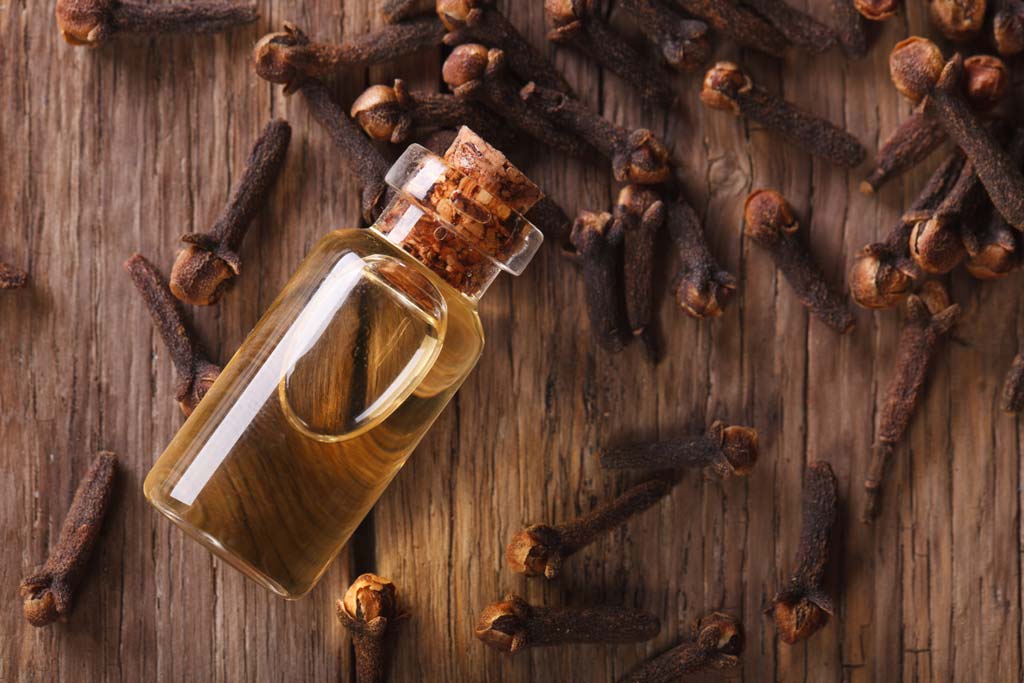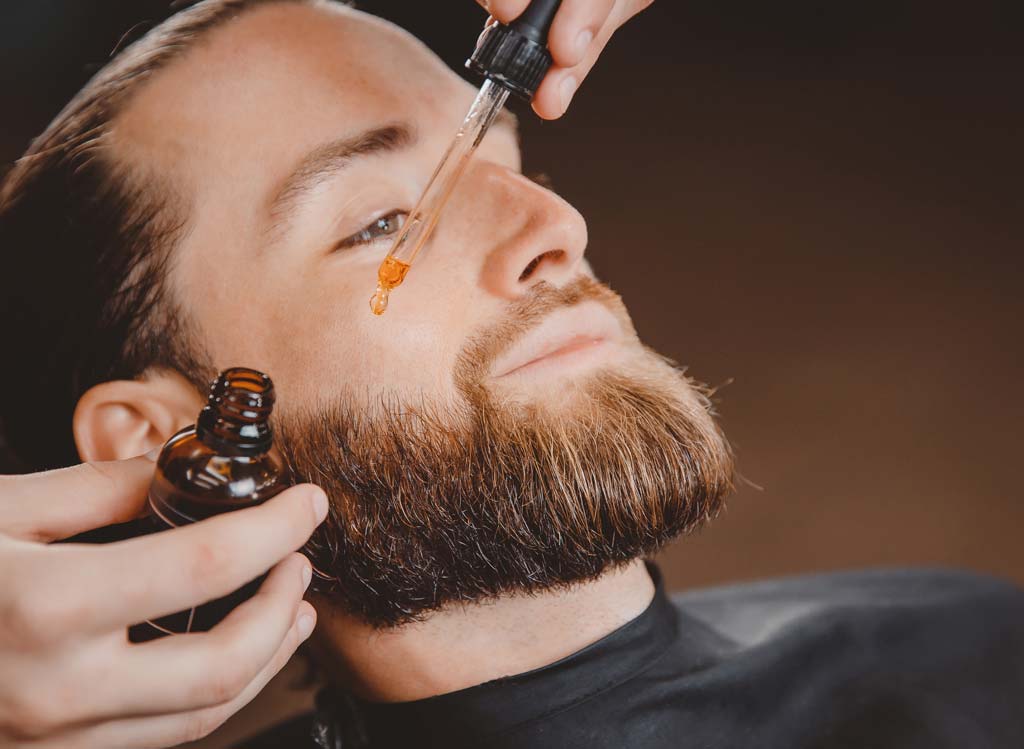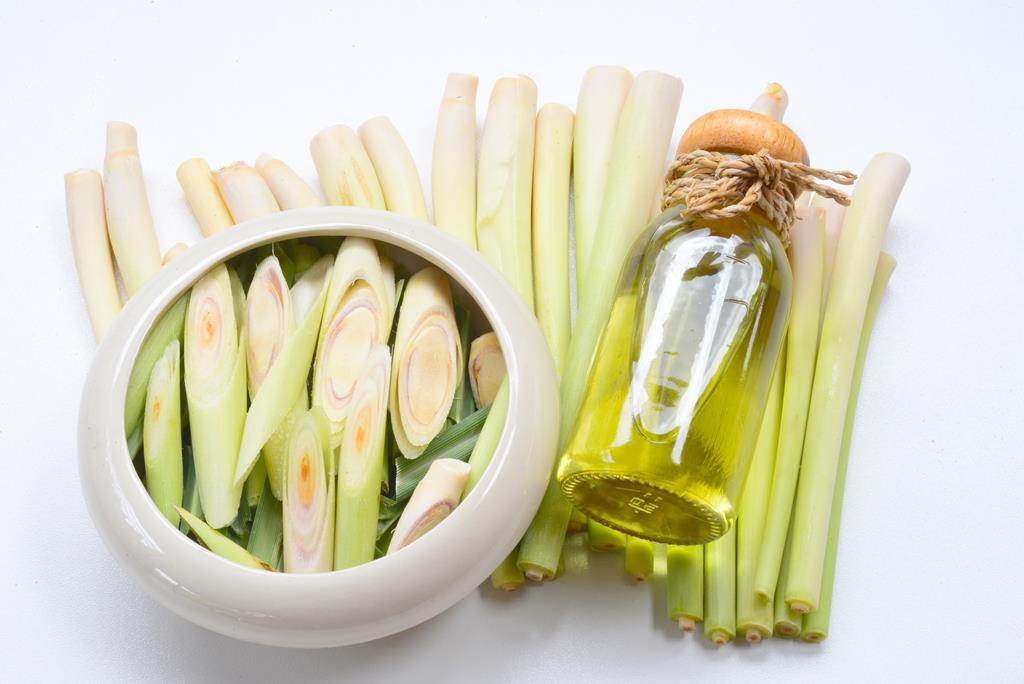Clove or Eugenia Caryophyllata is a popular spice that is commonly used in Asian cuisine as an aromatic agent. Clove is also considered as a herbal supplement because of its numerous health benefits. Clove oil is an essential oil that is extracted from cloves and has a very calming and pleasant scent. Major health benefits of Clove oil include:
- Its germicidal properties help relieve toothaches and gum problems.
- Boosts the immune system.
- Treats respiratory problems such as bronchitis and cough.
- Stimulates blood circulation and improves metabolism in the body.
- Treats infections, inflammation, and itching.
Also Read : Clove Oil for Teeth - Uses ,Side Effects & more
Though there are many benefits of incorporating a certain amount of clove oil in your regular diet, overuse of the oil may also lead to potential side effects. Some people are also allergic to certain natural ingredients so one has to be sure that they're not allergic to clove or clove oil before they start using it. All essential oils, including clove oil, are highly concentrated and potent extracts, hence one needs to heavily dilute these essential oils before use. Check out the following side effects that have been observed from the use of clove oil, arising out of its reaction in some people or out of its overuse or improper use among other reasons:-
Risky Side Effects of Clove Oil
1. Abnormal/Increased bleeding
Clove oil contains a chemical compound called Eugenol. Eugenol is a blood-thinning agent which means that it can decelerate the blood clotting process leading to increased/abnormal bleeding. Overconsumption of clove oil over a large period of time can thin out the blood, putting you at risk of bleeding out in case of an injury. Thus, if you are already suffering from bleeding disorders such as haemophilia, it is advised to stay away from clove oil. Clove oil must also not be consumed if you are about to undergo a surgery or if you consume drugs that contain anticoagulants.
2. Toxicity
If you consume large doses of clove oil or clove oil, you are putting yourself at risk of developing serious toxic effects because of the oil. Toxicity on the body manifests with symptoms that include nausea, sore throat, vomiting, fluid imbalance, sedation, liver and kidney disorders and even respiratory failure in some cases.
3. Seizures
Clove oil is an extremely potent version of the spice. Consuming too much clove oil on a daily basis can increase the risk of seizures. Clove oil can cause some amount of irregular electrical activity in the brain cells. This makes one vulnerable to seizures, sometimes multiple times. The condition is characterized by convolutions, unconsciousness and in rare cases, epilepsy too.
4. Lowers sugar levels
Clove and clove essential oil can decrease the amount of glucose that is present in the bloodstream. This can be extremely harmful in patients who have been diagnosed with hypoglycemia. Thus, those who have a lower than normal blood glucose level, must reduce their clove oil consumption to a minimum, or refrain from using it completely. The blood sugar levels must be monitored on a regular basis and the clove oil intake modified accordingly.
5. Allergic reactions
One of the common side effects of using clove oil either topically or for internal use is the risk of developing an allergic reaction. Eugenol present in clove can lead to rashes, swelling, hives, difficulty breathing and even anaphylaxis. Because the allergic reaction to the oil can be an acute whole-body reaction, it can cause death in extreme cases too.
6. Erectile dysfunction
Some herbal creams and lotions contain clove extracts and clove oil in them. Regular application of these dreams to the genital area can lead to sexual issues such as premature ejaculation and erectile dysfunction. If you face difficulty with erection for a considerable amount of time or difficulty in ejaculating, discontinue use of the cream/lotion.
7. Increased mouth sensitivity
Too much consumption of clove oil or clove extracts can lead to the inflammation of the mucous membranes that are present on the inner walls of the mouth. Studies indicate that with regular increased use of clove oil, extensive damage can be caused to the gums, tooth pulp and teeth. It creates an unpleasant and uncomfortable burning sensation in the mouth and can lead to sore lips and eventually dental cavities as well.
8. Respiratory problems
Clove extracts and clove oil is also used in the making of clove cigarettes, which has become quite famous nowadays. However, using these cigarettes on a regular basis will lead to a number of respiratory issues. Inhaling the clove extracts leads to clove powder passing through the airways and into your lungs. This can lead to breathing problems such as shortness of breath, cough and lung infection.
9. Increased skin sensitivity
The skin on the body is just as sensitive as the skin on the inside of your mouth. Using clove oil that is not diluted with any carrier oil can take a toll on your skin. Topical application of potent and undiluted clove oil leads to the skin becoming extremely sensitive, causing contact dermatitis and burns, irritation, inflammation, rashes. If you continue to use undiluted clove oil on a daily basis, it can also cause significant permanent damage to the skin cells.
Also Read : What To Dilute Clove Oil With For Skin And Haircare?
10. Loss of sensation
Eugenol present in the clove oil can act as a numbing agent sometimes. A few studies have shown that clove oil, when applied topically on the skin over a significant period of time can lead to loss of sensation. Thus, it is advised to never use the oil in conjunction with synthetic painkillers.
Precautions of Clove Oil
Given all the side-effects that clove oil can have on the human body, it is important to take a few precautions before you can use the oil on a regular basis:
- Refrain from using clove oil or clove extracts if you are allergic to clove.
- Consult a physician or a pharmacist if it is safe for you to consume clove for internal use or even use it topically if you have health issues such as liver diseases, weak immune system, bleeding disorders, blood clotting disorder such as haemophilia or any plant/food allergies.
- Do not use clove oil if you are pregnant as it is not known if the oil can have any side effects on the unborn baby. Consult your doctor before you do so.
- Do not use the oil if you are breastfeeding a baby as it is not known if the oil, when passed into the breast milk can harm a nursing baby.
- Do not give a child health supplement with clove oil in them or use clove oil for them without medical advice. Avoid for pets too.
- Increased oral consumption of clove oil can lead to convulsions and seizures in children if not regulated and monitored properly.
Cloves and clove oil has been used popularly for relieving dental disorders such as toothache and bad breath. If you're suffering from dental health issues, do explore these natural treatments to the common dental issues.
Also Read : Embarrassed By Bad Breath? Here’s How Clove Oil Can Help You
Have a closer look at this list of top benefits and uses of clove oil for different beauty and wellness goals. Also here is an infographic that brings you a snapshot of benefits of clove oil.
Disclaimer: All the content on www.anveya.com/blogs/top-tips is solely for information. It is not intended to be a substitute for professional medical advice, diagnosis or treatment. Always seek the advice of your physician or a qualified health care provider. The information, suggestion or remedies mentioned on this site are provided without warranty of any kind, whether express or implied.



